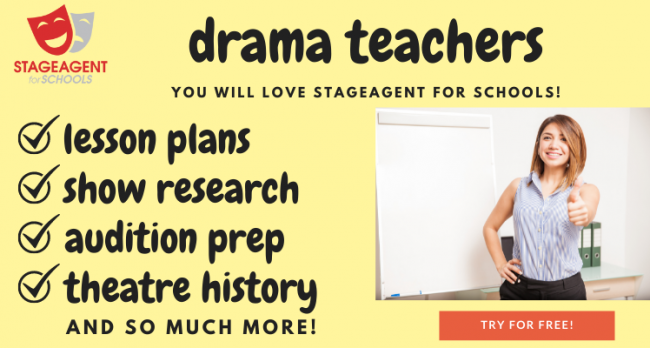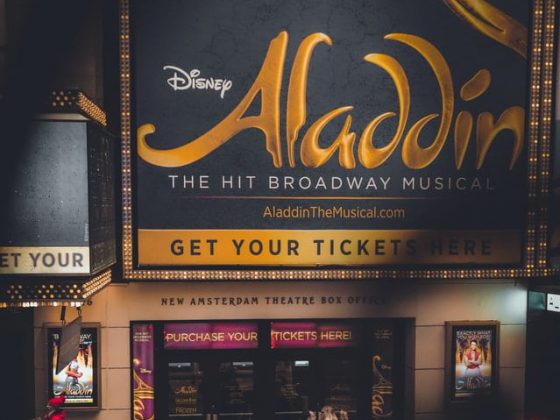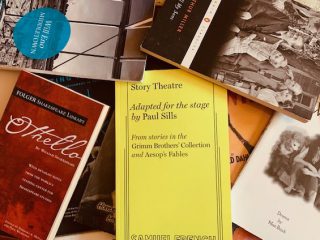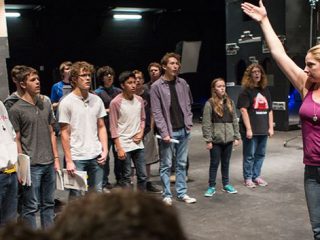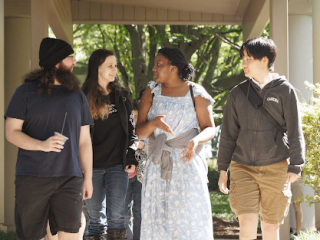I’m a planner. I plan everything. I’ve got my personal budget planned through the remainder of the summer, I create a weekly to-do list that I then remake every day, and I plan two-day vacations a year in advance. So needless to say, I’m thinking about my next school theatre season far before my current one ends. Sometimes planning a season happens very easily and organically, and sometimes I feel like I’ve never read a play in my life and I have no idea what I’m doing.
When I think about the shows I might produce with my students, I take into account a few things.
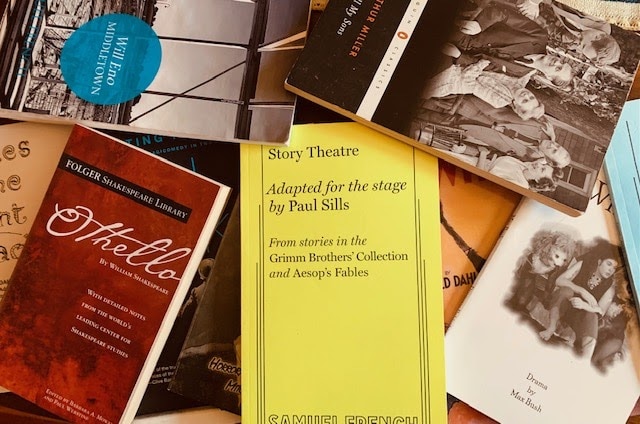
LOGISTICS (& other such buzzkills)
$$$$
Ugh, money. The ruler of so many things. How much money do you have to spend? How much money are you expected to make?
If you have the budget for a big musical, but are expected to make the cost of the show back, then you may be looking at more popular titles that you know will draw in a larger audience.
On the other hand, if you have essentially no budget, then perhaps you’re looking at shows with no rights/royalties. You could dust off your favorite Shakespeare, or perhaps write your own play with your group! It’s about more than the royalties, though. If your show calls for a wildly complicated set that would cost a ton to build, but you don’t have access to the lumber or financials? Then that show may have to be on hold.
Think about royalties, set, costumes, props, rented equipment–any additional people you may pay. (Music directors, choreographers, tech directors, etc!) Make sure you’re picking a show that fits your budget.
Worth noting: I think you can make some fantastic theatre with zero dollars. You have to plan around your available finances, but they do NOT make or break the piece you create.

Your community and administration
This is a big one. I very often see postings from director friends saying, “Looking for an ensemble show with a mostly female cast that’s relatively PG”. I am fortunate that my administration has faith in my judgment, and has yet to knock down any idea that I’ve pitched them. The school supports various kinds of art, and though I know that there are boundaries, I am fortunate to not feel super restricted as long as I’m thoughtful about my choices.
What are the boundaries of your program? Do you have a good understanding of what your school administration is comfortable with you producing? Ensure that you understand what topics are off the table or what choices they may perceive as problematic. Do they need family friendly G-rated shows? Will they be stressed if your dancers in Guys and Dolls don’t meet school dress code?
I’m not saying that you can’t have well-researched and thoughtful pushback to the feelings of your admin, but ultimately at the end of such a discussion, you’ll want them to be on board. If you pick a piece that, for any reason, receives complaints? Having the school administration on your side is key.
THE STUDENTS WHO WILL BE INVOLVED
I consider:
My current performers
The last few years, I’ve had very serious performers. Students who love and lean into the dramatic. Students who like horror. Gymnasts who could turn their bodies into pretzels. Kids that begged for tragedy. This played to my own artistic strengths, because I love drama and I love spooky. I’m good at taking an ensemble and creating things that feel loaded or ominous.
However, this upcoming year? My returning students are a bunch of adorable goofs with excellent comedic timing. They can hit a one-liner like nobody’s business, but are maybe less comfortable with major on-stage vulnerability. I haven’t tried a true comedy-comedy in years, because it just hasn’t been the right group. However, I’d be doing my students and myself a disservice if I didn’t give this group a chance to be funny! If I’d done a big comedy over the last few years, it wouldn’t have landed as well.
Though I may not be picking a season off my own personal strengths, I know that pushing myself is good.
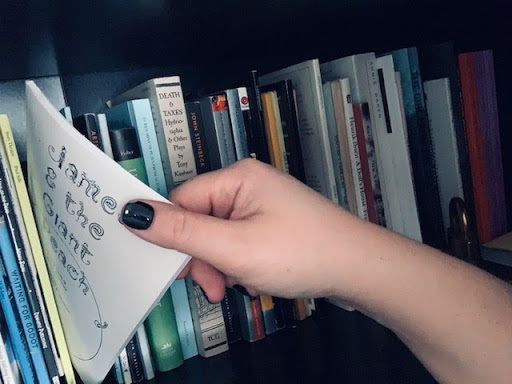
Your goals for your students
Now, I just talked about picking a season based on student strengths, but maybe your goal for the year is to take risks, or push your students to work outside of their comfort zones. And that is totally valid too!
If you’re lucky–maybe there’s room in your season for both. One show for fine-tuning the work that they’re good at, and one show for building new performance skills and embracing challenge.
Either way, whichever your goal, you’re still basing choices around the students that you know are returning the next year.
The experience and skills of my technicians
Some years, I have a super-robust tech crew who have been doing theatre for years. Some years, I have only a few young students who are just starting out. If my group is small and/or green, then this may not be the time that I plan the tech-heaviest show of my career! (Now, if your program has another adult who deals with all of the technical aspects, maybe this doesn’t apply as much.) My program uses student designers. They build, run the lights and sound board, work backstage, and my goal is for them to get a lot out of the program–while also honoring where they are in their tech journey.
If I have a large tech crew with experience and skill, then I can make our technical demands more challenging and give them more autonomy.
How many students will be involved?
Does your school program have students beating down the door? Do you constantly need shows for a large ensemble, or do you have a smaller program that allows for smaller casts?
Perhaps you cut students at auditions, which may give you more flexibility in the shows you select.
For the two shows I direct each year, I try to have one where I take every student–and one where I may choose to make cuts. This allows every student who auditions the opportunity to be on stage during the year, while also impressing on students the importance of preparation and diligence for our later show.
If you are totally against making cuts? That’s not your vibe? That’s fine! Absolutely. It all goes back to the goals of your program. It may limit your show selection if you always have a large group, but I’m sure many students will be grateful!
If you do plan on making cuts for a show, I recommend making sure that that information is told to students and parents in advance. I like to include it on the audition form they sign!

TWO FINAL QUESTIONS
And they’re big.
Is the show offensive or outdated?
Some old “classics” just don’t hold up anymore. You can easily find articles of well-meaning theatre teachers choosing to put up some old, much-produced play that contains racial stereotypes or overt sexism that would never be written and accepted by the theatre community today. It is often best–and safest– to leave those plays behind. Now, I’m not saying that you should avoid plays that discuss race, or run away from material that can be challenging and important–not at all! But if the show has outdated stereotypes that are clearly problematic, it’s often better to find different material than to work on the justifications for doing the show. Not only is it more work on your end, but more importantly, you never know what child in your community you may be harming with your choice.
Are you excited about directing these shows?
You have to pick shows that you like the idea of directing. You’ve got to set yourself up for an enjoyable time. You want a show that you can throw yourself into, that you can be passionate about, that you have a vision for.
I’ve definitely felt “whatever” about scripts that I’ve picked, and then spent the whole process annoyed with the play and underwhelmed with my own work.
Set yourself up to love it.
After the year we just had, I wish all of you school directors out there theatre seasons that make you feel joyful and fulfilled. You’ve earned it.


